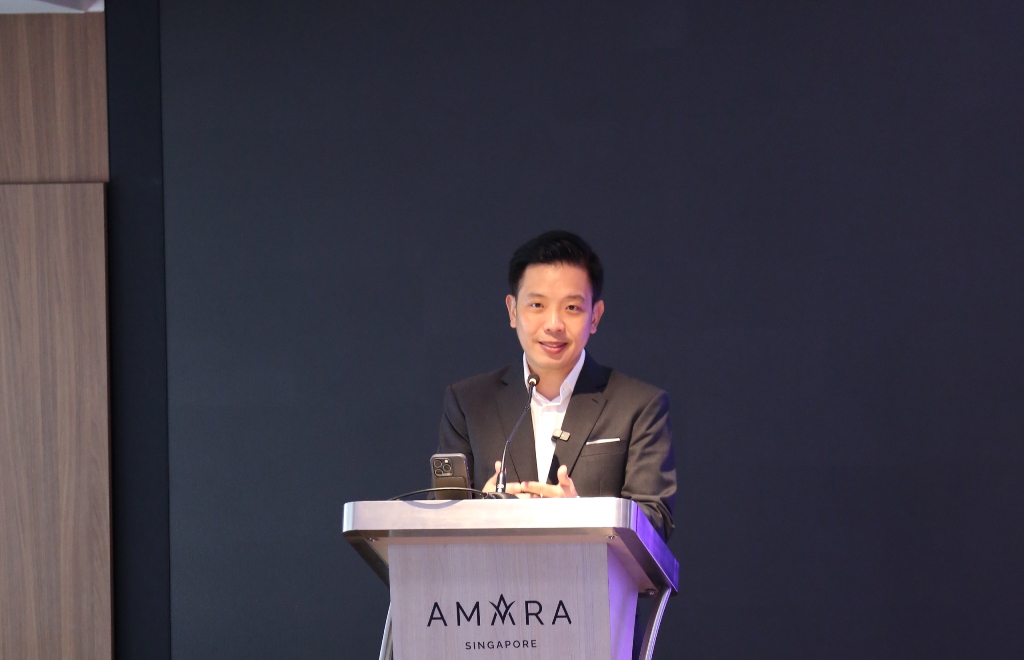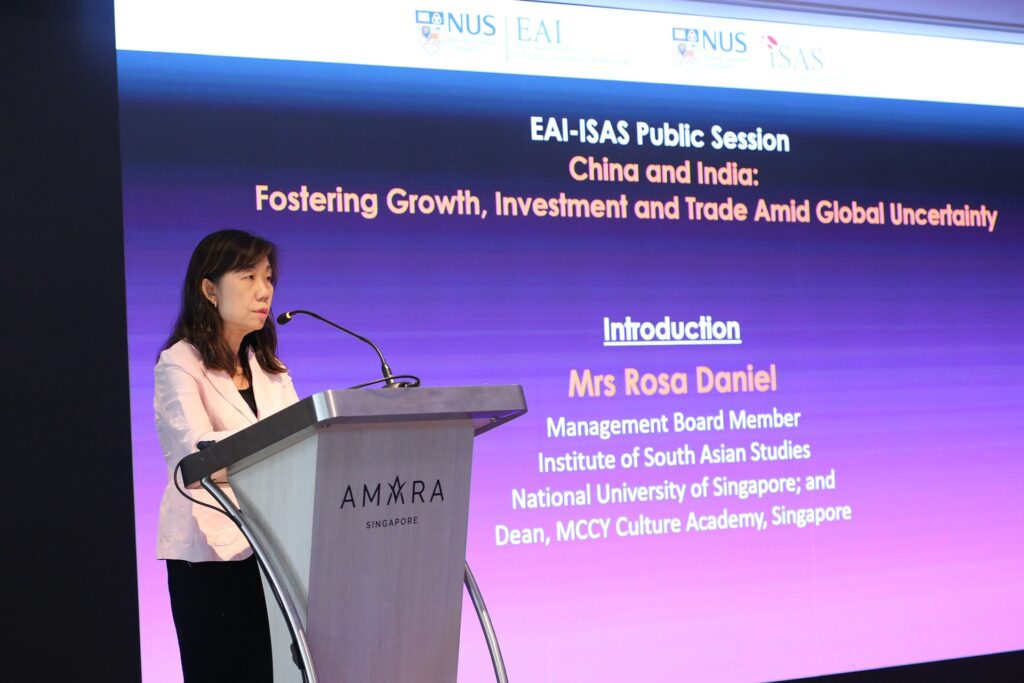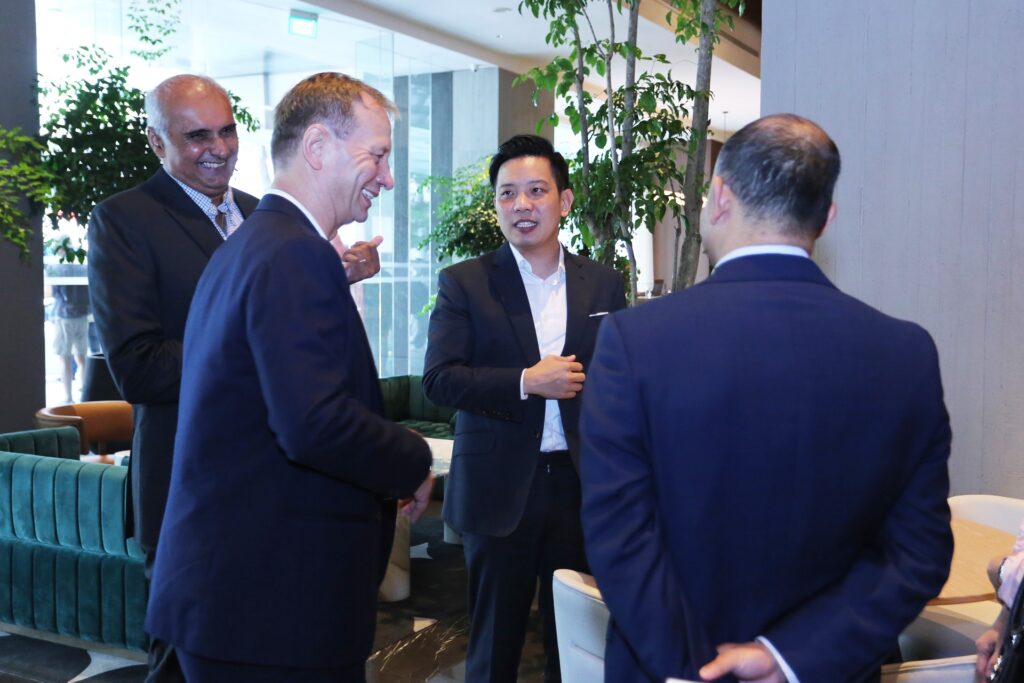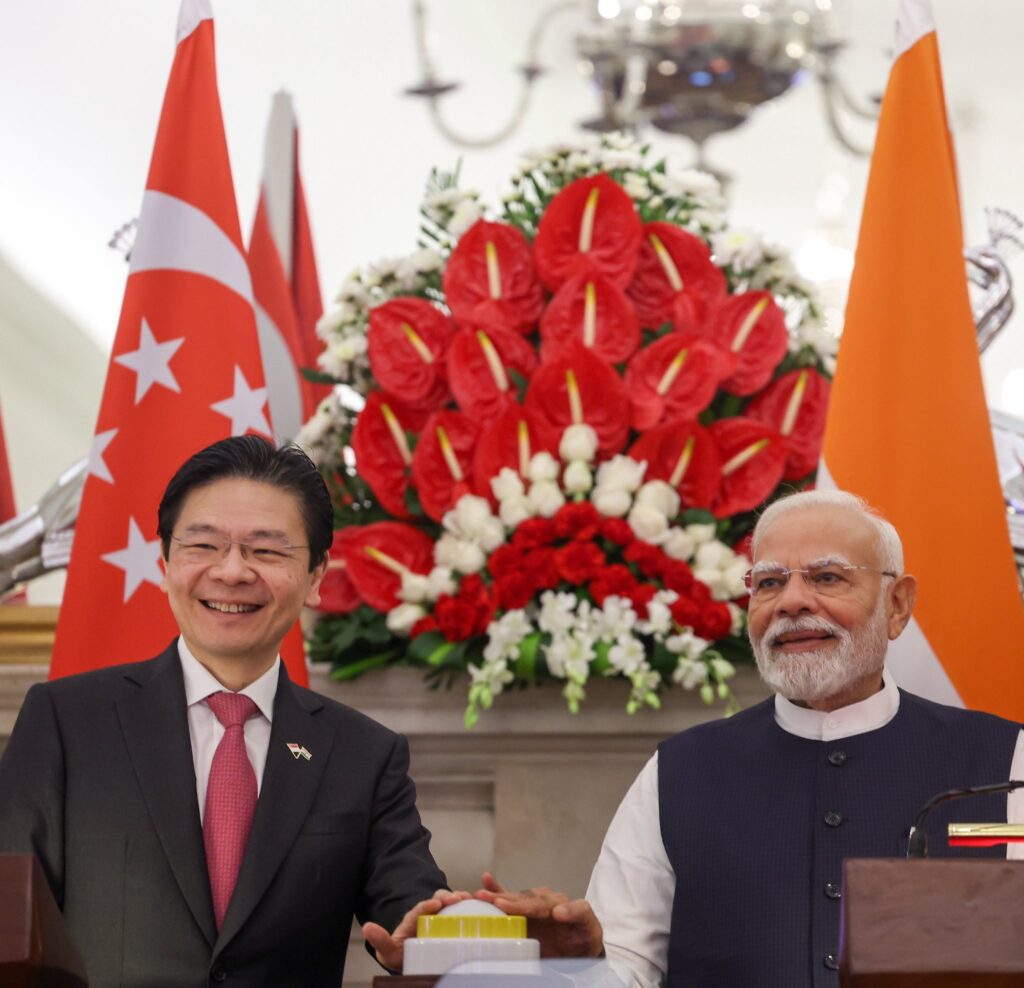Describing India and China as “drivers of Asia’s growth”, Singapore’s Minister of State for Trade & Industry and National Development Alvin Tan on Monday, September 8, said the Association of Southeast Asian Nations (ASEAN) gain when New Delhi and Beijing engage.

“ASEAN is a platform where both giants (India and China) can connect with the wider region,” Tan said at a forum organised by the East Asia Institute (EAI) and the Institute of South Asian Studies, NUS, on the recent China-India initiative to re-connect. “Alongside ASEAN, they are drivers of Asia’s growth,” he asserted.
ASEAN a regional organisation set up to promote economic growth, social progress, and regional peace and stability. The 10-member bloc comprises Brunei, Cambodia, Indonesia, Laos, Malaysia, Myanmar, the Philippines, Singapore, Thailand, and Vietnam.
Tan noted that ASEAN offers a thriving market, stability and opportunity for trade and cooperation.
He was speaking at the forum titled ‘China and India: Fostering Growth, Investment and Trade Amid Global Uncertainty’, organised by the East Asian Institute and the Institute of South Asian Studies of the National University of Singapore.
As Southeast Asia’s largest trading partner, China and ASEAN have deeply integrated supply chains, Tan said, pointing out that Beijing is also one of ASEAN’s top investors in infrastructure projects such as railways, ports and industrial parks.
For India, there is also an opportunity for the country to integrate supply chains with ASEAN for key sectors like semiconductors and green energy, he said.
“Both parties (India and ASEAN) are also working on initiatives that will further strengthen the ASEAN-India relationship via digital and green economic initiatives,” said Tan, who is also the Minister of State for National Development.
The minister also elaborated on Singapore’s bilateral ties with both China and India.
Singapore “recognises the importance of building a strong foundation of trust required for enduring China and India partnerships”, he said.
With India, Tan noted, Singapore signed its first FTA in 2005, creating conditions for greater trade and investments over the past two decades. The India-Singapore Ministerial Roundtable (ISMR), launched in 2022, held its third edition in New Delhi last month, alongside the India-Singapore Business Roundtable.

He cited PSA International’s USD 1.2 billion investment in Navi Mumbai port as one of the largest by the Singapore port operator in India. He also pointed to collaboration in semiconductors, sustainable industrial parks and workforce skilling initiatives.
“India’s growing strengths as a manufacturing hub for electronics, electric vehicles, auto components and green energy have opened new pathways for Singapore to strengthen G2G (government-to-government) partnership as well as provide opportunities for businesses from the city state to contribute to India’s growing economy,” Tan said.

This year marks 60 years of diplomatic relations and 20 years of the Comprehensive Economic Cooperation Agreement (CECA) between India and Singapore.
During Prime Minister Lawrence Wong’s recent visit to India, he and Prime Minister Narendra Modi launched a roadmap for the Comprehensive Strategic Partnership (CSP) that will guide ties in the next phase.

China, Tan said, has been Singapore’s top merchandise trading partner since 2013, while the city-state is the largest foreign investor in China. The China-Singapore Free Trade Agreement, he noted, was the first comprehensive bilateral FTA Beijing signed with an Asian country.
Bilateral cooperation has since expanded beyond economics to areas such as health, culture and education, with both sides engaging regularly through the Joint Council for Bilateral Cooperation, Tan said.
Tan pointed out that Singapore has long been intertwined with China and India.
“We are a trading hub, facilitating centuries-old trade and cultural ties in the region, and we continue our legacy of trade and connectivity even today.
“Our people embody this living connection – Singapore’s Chinese and Indian communities, along with others, built our nation together and shaped our culture, from the food we eat to the festivals we celebrate. We stand ready as a platform where ideas, investment and innovation converge,” he said.


